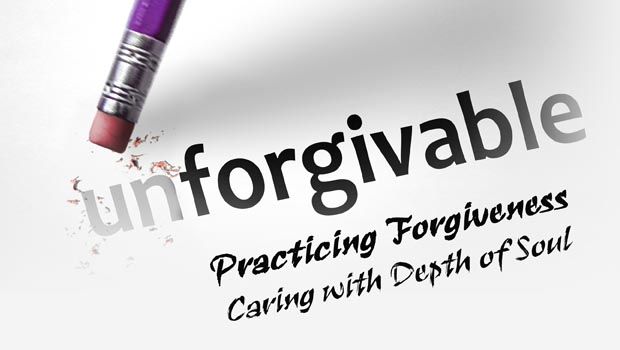As the sunset marking the beginning of yet another Ramadan approaches us, Muslims begin to scurry around in efforts to prepare themselves for the responsibilities of this sacred month. The prayer schedules marking suhoor and iftar times are published, Masjids prepare their facilities for the expected worshippers, the Imams revisit sections of Quran where reinforcement of their memorization is needed, and parents ready their refrigerators and freezers with food items for upcoming iftar treats and dinners. It is a truly blessed time of the year marked by remembrance of Allah, connecting with fellow Muslims, and the excitement of abundant rewards to be earned.
By practicing forgiveness we achieve having a heart unburdened by feelings of ill will. We have every reason to practice forgiveness as it is a healer of wounds, a softener of the heart, and a purifier of the soul
However, in the midst of all this preparation, we must remember to focus on those things that are not as easily achieved. Facing Allah (SWT) and reinforcing our connection with Him is critical but so is our duty towards others, fundamental to coming nearer to Him. One of the challenges we face is the Islamic emphasis on practicing forgiveness of others who have wronged us or hurt us.
Forgiving others is not an easy task. But we do have the capacity to overcome our anger, hurt, or resentment. Allah (SWT) is clear in His instruction for us to forgive and care for our fellow believers. Moreover, He sent us His Messenger, Muhammad (SAW), as a model for the demonstration of this difficult task. Psychologists have extensively researched the phenomenon of forgiving others, both its inhibitions and the personal consequences of feeling vengeful, as well as its full expression and the emotional and psychological rewards for the ones who achieve it. It is an established fact noted from research that those who have worked through their negative emotions over an injustice toward them, and moved towards forgiveness, live a happier life with a better mental and emotional well-being. So what steps can we take to get closer to this target of practicing forgiveness?
Step One in Practicing Forgiveness
Working Through the Initial Pain
The first step is to acknowledge to ourselves what has happened and to allow ourselves to feel the pain rather than to repress or dismiss our feelings of hurt, disappointment, or anger. Crying might be a natural outcome if sadness is a dominant emotion in the aftermath of the offense. Praying to Allah for help and relief is always helpful, and making du’a to Him as a means to freely express one’s pain is highly recommended. Expressing one’s thoughts and feelings in a personal journal can also be very therapeutic. And certainly giving some time for the initial shock to diminish – perhaps practicing deep breathing, practicing patience, and seeking solace in one’s faith – helps to process and work through the pain.
Step Two in Practicing Forgiveness
Putting the Situation in a Larger Perspective
The next step would be to try to understand the situation and why it happened. Perhaps the person wronged you out of ignorance, or a burden or stress he was experiencing caused him to act that way and afterward he felt sorry for his behavior. It is important to speak with the person who you feel wronged you and allow him or her to explain the situation from their perspective. That doesn’t mean that you will necessarily find their explanation satisfactory and if that is the case, you should have a healthy assertiveness in telling them why you feel that you have been wronged. This must be done in a calm, respectful manner. Upon listening to your view of the situation and why you feel you have been wronged, the person has the opportunity to apologize if they feel sorry. Once you have had this dialogue with them, you have the information you need to put the situation in a larger perspective and make an assessment as to whether to accept their apology if you feel it is sincere and to forgive them.
Step Three in Practicing Forgiveness
Learning to Let Go
If the person who has wronged you is a family member or friend, and you have accepted an apology from that person, then the next step is to let go of any resentment or anger toward them. This allows the relationship to move forward and hopefully each of you is more aware and committed to a healthy dynamic, having learned from the situation, insha’Allah. There is a higher level of satisfaction and inner tranquility achieved by letting go of hard feelings and ill will towards someone who has grieved us. Forgiveness leads us to be more compassionate and loving. It humbles us so that we are in a better place when we face Allah and ask for His forgiveness for the sins we have committed towards Him. A verse from the Quran states, “The reward of evil is the evil thereof, but whosoever forgives and makes amends, his reward is from Allah” ( 42:40).
With all the benefits we receive from the Almighty for practicing forgiveness, as well as the psychological benefits we achieve by having a heart unburdened by feelings of ill will, we have every reason to practice forgiveness as it is a healer of wounds, a softener of the heart, and a purifier of the soul. And if performed in the sacred month of Ramadan, there is a multiplier effect of these benefits. We have nothing to lose and everything to gain.






